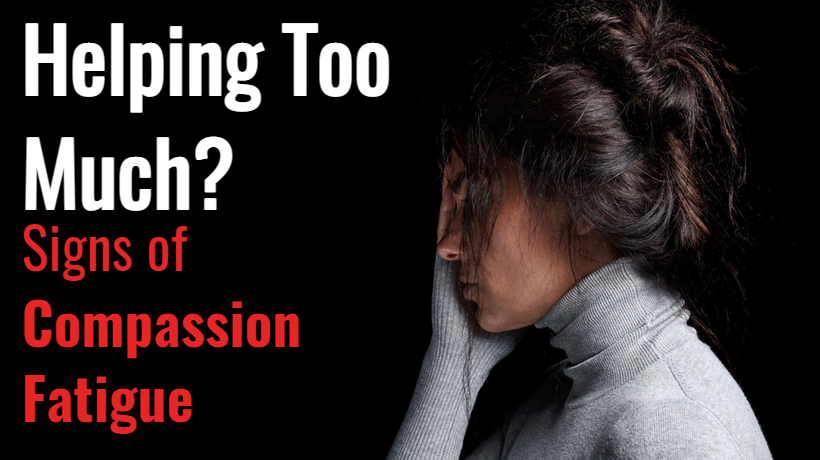We are often told too often to “be kind to others” and to be there for one another. But too much of something is never a good thing. Now more than ever, many people find themselves experiencing “compassion fatigue” or secondary traumatic stress from overextending a helpful hand.
According to experts, the fatigue itself may bring on a prolonged state of stress or tension with the physical, psychological, and emotional pain or suffering of other trauma survivors. Thus, compassion fatigue is common amongst healthcare workers, police, and first responders as they typically take on stress from traumatized individuals they may encounter.
In a recent Psychology Today article by psychologist Veronika Tait, “when the exposure of suffering is prolonged, with a lack of relief from the burden of responsibility, one’s ability to care can be severely impacted.” Said exposure partnered with constant empathetic expressions can be more harmful than helpful to the individual, as one’s emotional energy can dimmish into self-doubt and further stress.
In stressful times, the most compassionate individuals may fall victim to compassion fatigue. For healthcare workers dealing with patients, a positive patient outcome means giving attentive and empathetic care; however, when taking on the emotional burden a patient may be bearing, it can result in fatigue and further stress.
Some signs of compassion fatigue to look out for include:
- An overactive, startled response to stimuli
- Nightmares or Insomnia
- Anxiety
- Constant feelings of hopelessness or feeling overwhelmed
- Stress
- Traumatic Memories
- Consequent reduced feelings of empathy
- Irritability
If these signs are not treated or dealt with over time, the long-term effects of compassion fatigue can become more than just burnout, and result in headaches, depression, heartburn, and even PTSD.
Recognizing these symptoms early on, and even practicing care before you are able to experience any sort of compassion fatigue may mitigate the possibility of developing fatigue. Emotional self-care is vital for healthcare workers and any kind of caregivers. Setting personal boundaries between the healthcare provider and the patient can simultaneously allow for compassion to still be present but also prevent emotional burnout.
While forming a connection is important, taking on someone else’s suffering can hurt both parties involved, and even damage one’s capacity to care for others in the future. \
Sources:
https://www.ncbi.nlm.nih.gov/pmc/articles/PMC4924075/
https://www.psychologytoday.com/us/blog/pulling-through/202105/signs-helping-others-is-hurting-you



